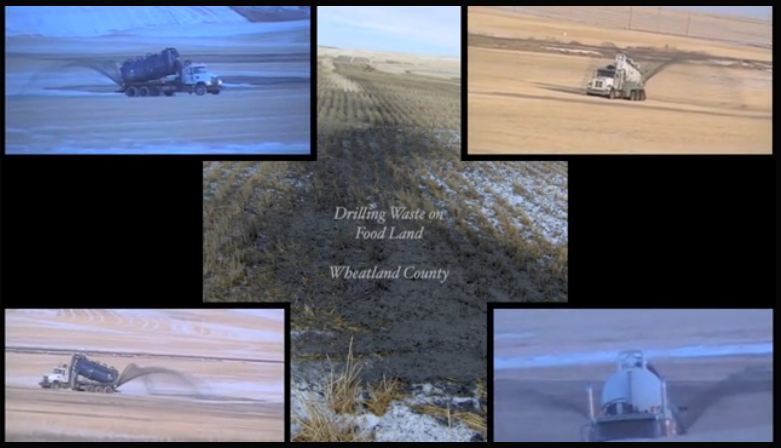Alberta declares province-wide agricultural disaster by Rachel Ward, August 22, 2015, Edmonton Journal
The Alberta government on Friday declared a province wide agricultural disaster as a result of extreme weather conditions.
The declaration allows the government-run Agricultural Financial Services Corporation to access reserve funds and pay out above average insurance claims more quickly, Agriculture and Forestry Minister Oneil Carlier said Saturday, while touring a farmers market in the southern Alberta hamlet of Millarville.
Earlier this month, the AFSC said it expects to pay out close to $1 billion to the 80 per cent of Alberta farmers struggling with drought.
“I’m standing in the mud right now in Millarville. There’s been really good rain this past little while. It’s hard to talk about drought when we’re up to normal for this time period,” Carlier said.
“The issue is we didn’t get the rain when we needed it. Right now, it’s too little, too late. The damage to the crops has already occurred.”
As for seeking financial support from the federal government, “we will be having that conversation,” Carlier said. “It’ll take in effect more than just Alberta, because I know the vast majority of Saskatchewan is dry, as well.”
The harvest is short in MacKenzie County, Reeve Bill Neufeld said Saturday. His northern Alberta county is one of about 20 that declared local states of agricultural disaster, trying to spark provincial action.
“It’s long overdue. We need that really badly,” Neufeld said.
Pastures and hay fields — few of which are insured in Alberta — have been dry enough to make hay scare in much of the province. Livestock producers have turned to social media to share shipping costs or seek donations.
The province offered discounts on water pumps to fill dugouts, and is also looking into offering government land to graze livestock. The federal government offered to defer some taxes on cattle sales.
More immediate help would help keep cattle in Alberta, Neufeld said.
“The cattle are being shipped and our numbers are going down. It takes a long time to replenish the herds.”
The ministry is considering ways to help producers feed livestock, which, for example, could include transportation subsidies targeted at the people who need it most, Carlier said. For now, insurance should be “the first line of defence,” he said.
“My crystal ball is as cloudy as the next person’s, and I hope we don’t have any more droughts in the near future,” Carlier said.
“Droughts are a natural part of the landscape. Our farmers are hard working, a resilient bunch. They’ve worked through drought before and with a little bit of assistance, will work through this one.” [Emphasis added]
[And, dumping of oil field waste on Alberta food land continues:
At Rosebud:
And in the Lochend, Rocky View County. Photo: FrackingCanada: Fracking Rocky View County:


